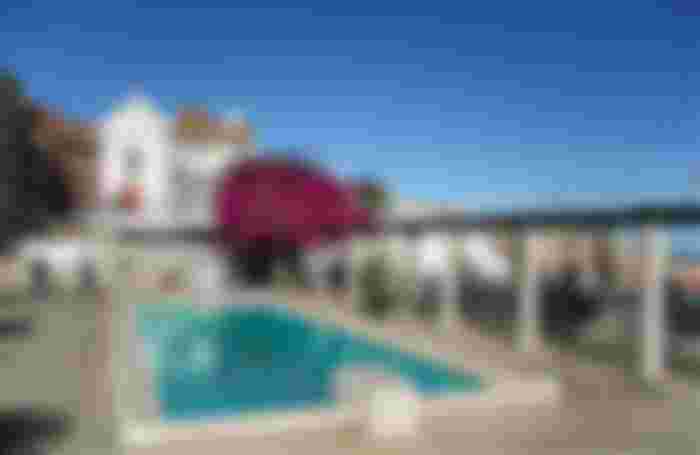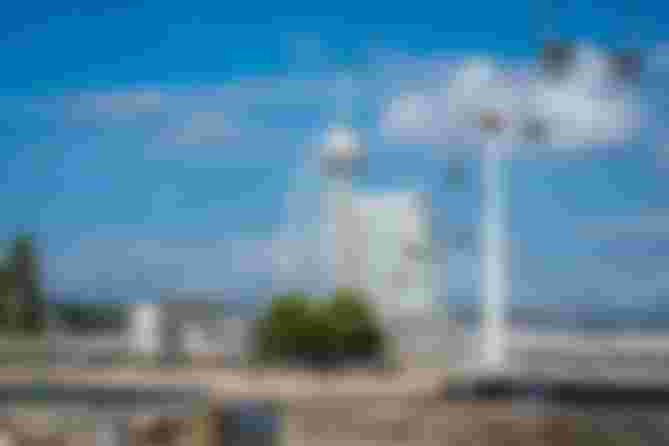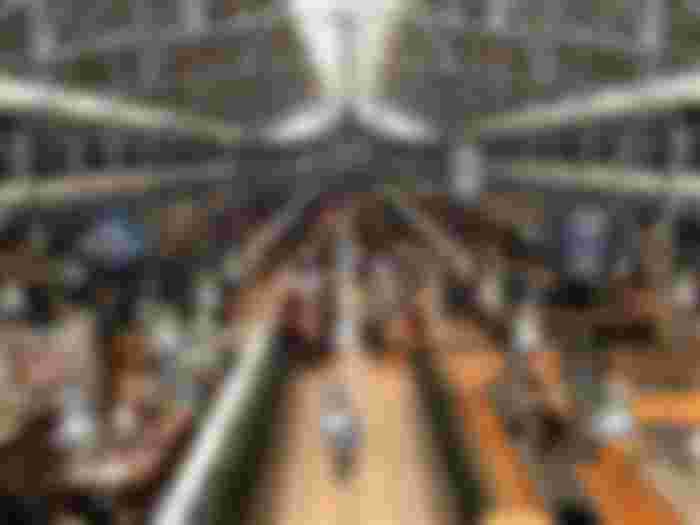Focus on a city : Lisbon - Portugal
You want to discover the capital of Portugal but don't know where to go. You just have to read this article and you will enjoy a beautiful trip in Lisbonne.
Also, remember that I'm writing on Medium and I would be really grateful if you can follow my channel named "Clément Delabruyère".
Short presentation
Lisbon, Portugal's enchanting capital, covers an area of around 100 km² along the banks of the River Tagus. With a population of around 500,000 in the city proper and more than 2.8 million in its conurbation, Lisbon is both a bustling metropolis and an attractive tourist destination.
Renowned for its blend of history and modernity, Lisbon is characterized by cobbled streets, picturesque districts such as Alfama and Bairro Alto, and panoramic views from vantage points such as Senhora do Monte. The city is divided into several districts, including the famous Belém, a reminder of Portuguese maritime exploration, and the Parque das Nações, a testament to the city's modernization.
Geopolitically, Lisbon occupies a significant position as the capital of a member of the European Union, playing a role in transatlantic relations and economic partnerships. Its historic port marked the history of discovery and the beginning of globalization.
Lisbon offers a mild Mediterranean climate, a vibrant cultural scene with museums, music festivals and art events, as well as delicious cuisine centered on seafood. The iconic No. 28 tramway and the famous Ponte 25 de Abril add a unique touch to the city.
Saudade, a melancholy feeling typical of Portuguese culture, can be felt in the narrow streets and moving fados. Lisbon harmoniously blends its rich historical heritage with a modern, progressive vision, making it a must-visit destination in Europe.
Historical background
Lisbon's history dates back to antiquity, with evidence of human occupation dating back several millennia BC. However, the precise details of its early years are often shrouded in legend and myth. Legend has it that the city was founded by Ulysses, the famous hero of Greek mythology.
Over the centuries, Lisbon has been influenced by various cultures and civilizations, including the Phoenicians, Carthaginians, Romans and Moors. The Romans took possession of the city in the 2nd century BC and named it "Felicitas Julia Olissipo". Under Roman rule, Lisbon became a vital economic and administrative center for the region.
After the collapse of the Roman Empire, the Iberian Peninsula was invaded by the Visigoths, followed by the Moors in 711. For almost four centuries, Lisbon was under Moorish rule, until it was retaken by Christian forces in 1147, as part of the Reconquista. This marked a major turning point in Lisbon's history, as it began to flourish as a Christian cultural and economic center.
In the 15th and 16th centuries, Lisbon became a starting point for Portuguese maritime exploration, playing a central role in the Age of Discovery. Famous explorers such as Vasco da Gama and Magellan used the port of Lisbon to embark on their epic journeys around the world, establishing global trade links and contributing to the city's international renown.
However, in 1755, Lisbon was struck by a major disaster, known as the Lisbon earthquake. This disaster destroyed a large part of the city and was followed by a tsunami and fire, causing enormous loss of life and property. This cataclysm had a profound effect on Lisbon's history and culture, influencing the philosophers of the Enlightenment.
Over the following centuries, Lisbon experienced periods of prosperity and hardship, including the passage through power of various dynasties and political regimes. It also played a key role in the historic events of the 20th century, notably the Carnation Revolution of 1974, which overthrew the dictatorship in Portugal.
Today, Lisbon embodies this rich history through its varied architecture, its historic and modern districts, and its role as the capital of a dynamic European nation, blending its glorious past with a forward-looking vision.
Must-see places
Belem Tower

This emblematic 16th-century monument on the banks of the Tagus River bears witness to Portugal's glorious maritime past. It combines Gothic and Moorish elements, offering panoramic views over the river.
Hieronymites Monastery

Also in Belém, this impressive 16th-century monastery is a masterpiece of Manueline architecture, with elaborate details and a sumptuous royal chapel.
The Alfama district

One of Lisbon's oldest districts, the Alfama is a labyrinth of narrow streets, colorful houses and picturesque squares. It's the ideal place to discover the city's authentic atmosphere and listen to traditional fados.
Bairro Alto

This bohemian district is renowned for its lively nightlife, cobbled streets, original boutiques and friendly bars. Day or night, it's the place to be if you want to feel the Lisbon atmosphere.
Place du Commerce (Terreiro do Paço)

This majestic riverside square offers a magnificent view of the water and the Ponte 25 de Abril. Once the gateway to the city, it is surrounded by historic buildings.
Miradouro de Santa Luzia

This viewpoint offers a breathtaking view of the Alfama and Tagus rivers. The colorful azulejos (ceramic tiles) that decorate the place add an artistic touch to the experience.
National Azulejo Museum

If you're fascinated by azulejos, this museum is a must. It houses an impressive collection of ceramic tiles, tracing the history and evolution of this art form.
Parque das Nações (Nations Park)

Formerly the site of the 1998 Universal Exhibition, this modern district is packed with attractions such as the Lisbon Oceanário (one of the world's largest indoor aquariums) and the Vasco de Gama Bridge.
Saint George's Castle (Castelo de São Jorge)

Overlooking the city from a hilltop, this Moorish castle offers panoramic views of Lisbon. Explore its ramparts, towers and gardens for a historic experience.
Ribeira Market (Time Out Market)

For an authentic culinary experience, head to this renovated covered market, where you'll find a variety of food stalls offering quality Portuguese dishes.
These ten sites will give you a fascinating insight into Lisbon, combining its rich history with its dynamic modernity.
Celebrities born in Berlin
Fernando Pessoa (1888-1935)

One of Portugal's greatest poets and writers, Pessoa is famous for his multiple heteronyms, distinct literary characters with their own voices and styles. His introspective, philosophical poetry has had a profound influence on modern literature.
Amália Rodrigues (1920-1999)

Nicknamed the "Queen of Fado", Amália Rodrigues popularized fado, a traditional Portuguese musical genre imbued with melancholy and emotion. Her powerful, emotional voice earned her international renown and helped preserve this cultural expression.
In order to conclude, if you have any ideas for improving this type of article (adding a section, for example), please let me know in the comments. Also, if there's a place in the world that you particularly like and would like me to write another article about, I invite you to submit your ideas too.
If you enjoyed reading please follow me and put a like, thank you !











